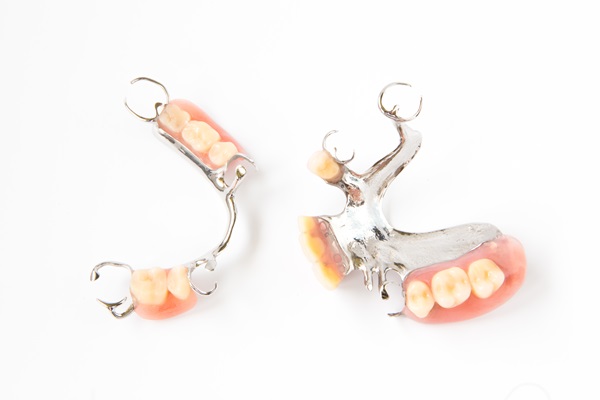Signs of Periodontal Disease

Periodontal disease, or gum disease, is a serious condition that is surprisingly easy to overlook. It is often painless and the symptoms are not always obvious until at an advanced stage of the disease. Additionally, when it comes to the mouth’s health, many people focus more on tooth health than gum health. But even if you are cavity-free and your teeth are in good shape, it does not mean that you are immune to gum disease. You should still be on the lookout for the signs and symptoms of the disease.
Signs and symptoms of periodontal disease
Periodontal disease is a common condition that affects millions of people. Seeking treatment early is often recommended to prevent it from becoming worse. If not treated, it can lead to many problems including tooth loss. There are various stages of periodontal disease ranging from gingivitis to periodontitis. It is important to watch out for any signs associated with the different forms of the disease. Here are some common ones.
Bleeding gums
Gum disease may cause the gums to bleed easily or ache. Healthy gums do not usually bleed when brushing and flossing. Poor oral hygiene will allow plaque created from bacteria to build up and eventually start irritating the gums. This can make them sensitive, red, swollen, and susceptible to bleeding.
The plaque often attacks tissue around the teeth. It can destroy the fibers that attach gum tissue to the teeth. This will result in the gums becoming inflamed and irritated. This may cause them to bleed when brushing and flossing.
Gum recession
Teeth may appear longer due to the gums surrounding them receding away. Gum recession is usually a sign that the disease is progressing. When this occurs, the depth of the collar of gum tissue around the teeth will increase. In later stage gum disease, the pockets often become too deep. It can then become harder to remove food as well as debris by brushing and flossing. This causes the pockets to become increasingly deeper and the disease to worsen.
Tooth sensitivity
Tooth sensitivity can be caused by thin tooth enamel and exposed teeth roots. Sometimes, gum recession or pocketing can also lead to tooth sensitivity. The gums usually cover the roots of teeth, which do not have any enamel to protect them. When roots are exposed, it can be uncomfortable and in some cases, even painful.
Bad breath
Having bad breath at one time or another is common. Brushing, breath mints, or mouthwash can help to get rid of it easily. But having bad breath constantly can be a sign of poor oral health because of several problems. These include tooth decay or gum disease. A dentist can help with constant bad breath and its causes.
Takeaway
Signs of gum disease include bleeding gums and gum recession. Tooth sensitivity and persistent bad breath are also other common warning signs. If you notice any of the signs of gum disease, you should contact your dentist right away. The earlier the problems are found, the easier it is to deal with them and their causes. If you want to find out more about the signs and symptoms of periodontal disease and the various treatment options, talk to your dentist today.
Request an appointment here: https://sandimassedation.com or call San Dimas Family and Sedation Dentistry at (909) 305-2300 for an appointment in our San Dimas office.
Check out what others are saying about our dental services on Yelp: Periodontal Disease in San Dimas, CA.
Recent Posts
Many patients who have missing teeth consider dental implants as an option to restore the look and function of their smile. When deciding whether to have the procedure, it is important to learn as much as possible about the treatment.There are a variety of things patients should know about dental implants when considering the procedure.Dental…
The teeth are an essential part of the human body, which is why so many people turn to dental implants. Without enough teeth, it is harder for people to bite into and chew their food and harder to enunciate certain words when speaking. When many teeth are missing, the shape of the face will change,…
Many people in the United States have dental implants, but that does not change the fact that misinformation about the procedure still runs rampant. Check out these myths and facts about them to help you determine if implant surgery is right for you.There are many myths about implants. Learn about the myths and the facts…
If you are missing one or more teeth, you may consider getting dental implants. Implants are a popular tooth replacement option, as they look and feel like natural teeth and, most enticing of all, have the potential to last for a lifetime. That said, though implants offer several benefits, they do come with a few…


